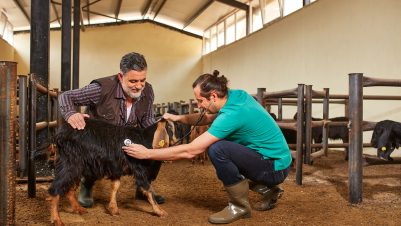Patient care is uppermost in our minds when at work; it is what we are all about and why we go to work. Our practices have advanced in kit and facilities over the years and veterinary surgeon and nurse training and skills have advanced massively in the last few decades. However, for all our patients, there comes a time when they need to leave the clinic. We can’t keep them in forever, although some practices give that approach a pretty good go! When they do leave, we entrust them to the care of the owners (and then the fallback of out of hours provision, should anything deteriorate).
Owners are sometimes extremely competent at patient management, but often are not so good. We will all have experienced explaining everything in great detail in the consult room (for example at a post-op discharge or a new diabetes, Addison’s, thyroid or heart case) and then hearing the client ask half a dozen questions at the desk on the way out – all things you had just told them.
The printed post-op form is some help but there is no guarantee that it will be read and understood by the client. (There was a story in the paper about a US insurance firm that buried a statement in the small print to the effect that anyone who read it and emailed a certain address would get $10,000. A schoolteacher won it, eventually.) The client usually leaves the practice in a highly charged emotional state with a load of instructions they probably don’t fully understand or remember and is left to get on with it.
What if there was some way of making the home care aspect more supported by the veterinary profession? Something other than recourse to out-of-hours emergency cover which, if not by the client’s own vets, has its own limitations for continuity of care. For practices that have to empty out all patients overnight, there is also a difficult decision to be made: send them home or transport them to an out-of-hours clinic (and in some cases, leave them in the clinic unattended).
To help make the cliff edge of patient care more of a gradual transition, we need district veterinary nurses (DVNs). I was made aware of this new role for veterinary nurses recently. It is very much in its infancy, but a few people are doing it and a development group has been set up to grow the idea.
In principal, it seems a very good idea. It would be fantastic, for example, to do your new-diabetic consult and say, “The district nurse will be round tomorrow to see how you are getting on and check the blood glucose.” Or “The nurse will be round in 48 hours to change the bandage.” This is especially true for clients who are less mobile or lack transport to easily move a sick pet around (yes, I know they should have something in place and the RCVS does not require us to be a pet taxi service).
The hurdles to overcome for the DVN role to grow are obvious – namely, funding and regulation. Regulation must make sure that the pet is still under the care of a veterinary surgeon when needed. For example, a DVN can be pretty autonomous in weight clinics, but maybe not when the need may arise to change a diabetes regime.
To generate an income is another hurdle. The idea of going to someone’s home to provide the best of care is great in principle, but extracting the money from people or insurers to fund this is going to be the problem.
In my view, one way round this would be for several practices to employ/subcontract one DVN between them. In anything larger than a small market town, this would be feasible. For a group of four average practices, a quarter of a veterinary nurse salary each could be found without too much difficulty.
The use of an online diary and fair play agreement could see a DVN doing the rounds without the problem of extracting cash on the road. How they build that into their fees would be up to them. But for an average-to-good veterinary nurse salary, that would equate to about £150 per week per practice in a four-practice scenario. To have one-quarter share in a DVN and all the benefits that would bring, I think that sort of figure would be very workable.
I wish the DVN group well and we will all watch developments with interest.
For more information, the DVN group can be contacted at: districtvetnurseDVNcampaign@gmail.com.











